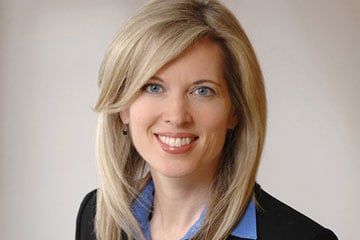
Courthouses As Community Hubs? Cabl Calls For Lao To Fund New Clinic Leaf Welcomes New Staff Lawyer Law Times Poll

The Advocates’ Society is set to hold a symposium to discuss the future of the courts as technology presents opportunities to make the system more efficient.
Courthouse of the Future Symposium will look at how courthouses can become community hubs for lawyers and litigants to access legal services.
“This improves access to justice in a holistic sense,” says Sonia Bjorkquist, the new president of the Advocates’ Society.
“On technology, the society is always looking for ways to improve efficiencies in the court system and thereby improve access to justice.”
Brian Gover, vice president of the Advocates’ Society, says having courthouses as community hubs would also allow litigants to have better access to community services that are connected to their needs in the justice system, such as mental health services.
“When litigants are able to receive these types of services as part of a community, this benefits advocates who can help litigants navigate through the justice system more effectively,” he says.
He adds that there are some courthouses that could provide a starting point for community hubs and some that already house such ancillary services but that there is room for improvement.
The symposium will also look at how courtrooms can use technology to make trials and other proceedings more efficient and paperless.
“Our hope is that we will see further investments in courtroom technology to facilitate this type of initiative,” Gover says.
The society is inviting experts from the academic world, government officials, judges and practitioners to the all-day symposium program, which will take place Nov. 21 at the Advocates’ Society Education Centre in Toronto.
The symposium will follow the Advocates’ Society fall convention, which will be held Nov. 1-5 in Nashville, Tenn.
The society is looking to present a CPD program at the convention that will tackle issues lawyers face in contemporary times. For more information or to register for the fall convention, visit the Advocates’ Society’s website.
The Canadian Association of Black Lawyers has called on Legal Aid Ontario to fund a new specialty legal clinic for the black community. LAO recently announced it was suspending funding to the African Canadian Legal Clinic in Toronto over allegations of fiscal mismanagement.
Following the announcement, CABL president Shawn Richard released a statement asking LAO to help establish a new clinic dedicated to the needs of the black community.
“The black community in Ontario is still a community underserved by Legal Aid Ontario,” Richard said in the press release.
“To date, the level of funding from Legal Aid Ontario has failed to meet the basic legal needs of the black community.”
Karen Segal has joined the Women’s Legal Education and Action Fund as the organization’s new staff lawyer.
The labour and human rights lawyer previously worked as counsel to the Ontario Nurses’ Association.
“I have long admired LEAF’s work and I look forward to working with other feminist advocates to continue LEAF’s mission of advancing women’s equality across Canada," Segal said in a news release.
A Law Times column addresses a provincial bill that proposes amendments on issues such as board diversity and majority voting requirements on “say on pay.”
Readers were asked if they think the law needs an overhaul when it comes to enhancing shareholder rights.
Roughly 44 per cent said yes, legislative changes will improve the ability of investors to control a company’s operations.
The remaining 56 per cent said no, the changes may extend activist shareholders’ personal agendas.